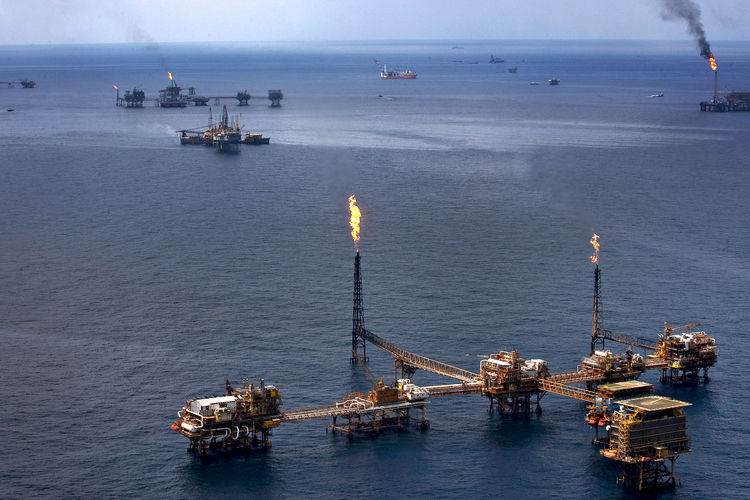- Flared Gas: FG Targets Six Million LPG Users
The Federal Government has commenced moves that will ensure the utilisation of flared gas by converting and supplying the commodity as Liquefied Petroleum Gas, popularly known as cooking gas, to six million households across the country.
It was also gathered that the government had laid out a framework through which it would issue licences to private investors, allowing them to productively utilise the volumes of gas that would have been flared.
In their different presentations at the recent 2018 Oloibiri Lecture Series and Energy Forum, which were obtained by our correspondent in Abuja, the Group Managing Director of the Nigerian National Petroleum Corporation, Maikanti Baru, and the Senior Technical Adviser to the Minister of State for Petroleum Resources on Refineries and Downstream Infrastructure, Rabiu Suleiman, stated that the government was working to further reduce gas flaring in Nigeria.
Suleiman specifically stated that the Federal Government inaugurated the Gas Flare Commercialisation Programme in December 2016, which was a high priority strategy for achieving the national mandate for gas flare-out by 2020.
The programme, he said, laid out a framework for the government to licence gas that would otherwise have been flared to technically credible and financially-sound third party private sector players.
On the expected deliverables of the commercialisation programme, Suleiman stated that the potential impact on Nigeria’s environment from flared gas utilisation was to give six million households access to clean energy through the usage of the LPG.
This, according to him, will see to the elimination of 20 million tonnes of Carbon IV Oxide emissions, adding that 600,000 metric tonnes of LPG per year will be unlocked.
He added that the potential impact in the power sector from flared gas utilisation would result in the generation of additional 2.5 gigawatts, as about $3bn capital investments would be injected to fund all the projects, with the capacity of creating 300,000 jobs.
Also speaking on measures aimed at taking out gas flaring, Baru stated that in the last few years, the NNPC started laying the foundation for a sustainable energy future.
He said, “We know the effect the United States shale oil boom has on our exports to North America and even its attendant effect on the world supply and oil prices. We know the effect of collapsed oil prices on a monolithic economy as ours. We know that change is bound to come.
“Our strategy is quite simple and it includes the diversification from oil using our enormous gas resources for in-country industrialisation via gas-to-power, gas-to-urea, methanol, and fertilisers. This has the potential to accelerate growth of our economy and mitigate the impact of future oil price drop.”
Baru said the oil firm had embarked on one of the most aggressive gas reforms as it had accelerated the implementation of gas pipeline infrastructure development, with specific focus on critical pipeline infrastructure to power plants being put in place.
He stated that between in the last eight years, almost 500km of pipelines had been completed, inaugurated and now delivering gas.
The NNPC boss said, “Some of the completed pipelines are the Oben-Geregu (196km), Escravos-Warri-Oben (110km), Emuren-Itoki (50km), Itoki-Olorunshogo (31km), Imo River-Alaoji (24km), Ukanafun- Calabar (128km). With these, all available power plants in the country today are connected to permanent gas supply pipelines.
“In addition, there is ongoing construction of the very strategic East-West OB3 pipeline (127km) scheduled for completion by Q3 2018, the expansion of the Escravos-Lagos Gas Pipeline System scheduled for completion by Q1 2018.
“Most recently, the Federal Executive Council approved the contract award of the 40-inch by 614km Ajaokuta-Kaduna- Kano pipeline and associated facilities. This pipeline is expected to supply natural gas to power plants and industries in the northern part of the country.”
Baru observed that once the pipeline was completed, the nationwide backbone gas infrastructure would be in place.
He stated that with the growth in infrastructure, gas which was hitherto inaccessible and flared would be fully utilised.
“Nigeria has seen the most aggressive drop in gas flaring from a peak of 2,500mmcf/d a few years ago to about 700mmcf/d currently and reducing; and in the next few years, we would have stopped routine flaring, meaning zero flare from all the gas producers,” Baru said.
He, however, noted that the pace of domestic gas demand was significantly higher than the country’s gas supply development growth due to a projected shortfall of about 3.4 billion cubic feet per day by 2020, as demand increases to 7bscfd.
This, he said, made the NNPC to identify short, medium and long-term gas resources to bridge the huge supply gap.
Baru said, “We have identified seven critical gas development projects to deliver about 3.4bscfd to bridge the foreseen medium-term supply gap by 2020, which will be aggressively implemented on an accelerated basis.
“These projects, when fully implemented, will enable the nation to meet its aspiration of delivering gas to support 15,000MW power generation and position Nigeria as a regional hub for gas-based industries.”

 Naira4 weeks ago
Naira4 weeks ago


 Naira4 weeks ago
Naira4 weeks ago


 Naira3 weeks ago
Naira3 weeks ago


 News4 weeks ago
News4 weeks ago
 Travel4 weeks ago
Travel4 weeks ago




 Naira4 weeks ago
Naira4 weeks ago


 Jobs3 weeks ago
Jobs3 weeks ago
 Naira3 weeks ago
Naira3 weeks ago






















